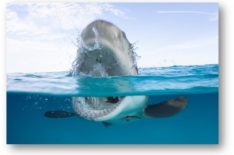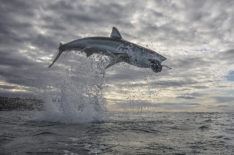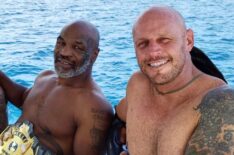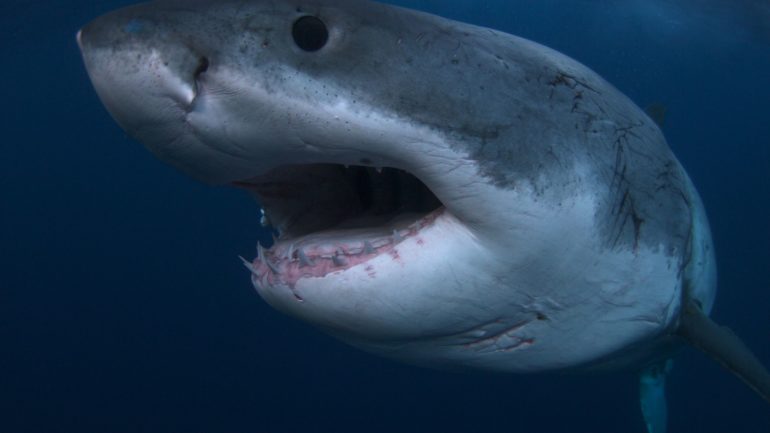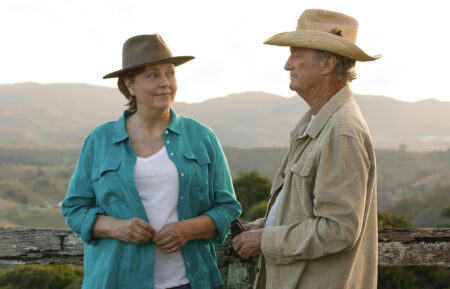‘Extinct or Alive’s Forrest Galante Previews the Dives of His Shark Week Special
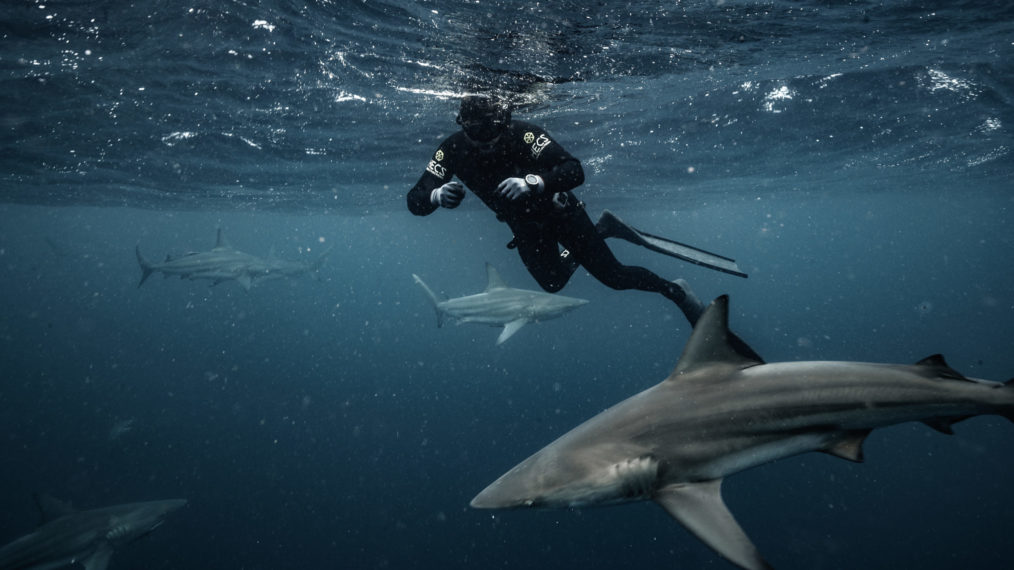
Q&A
Discovery Channel’s Shark Week kicked off August 9, and the 32nd annual event dedicated to the apex predators of the seas is scheduled to have some great shows lined up, including an Extinct or Alive special.
Land of the Lost Sharks follows Forrest Galante and his crew as they travel to the northeast coast of South Africa in the search for three species of sharks that have not been seen by scientist in years.
Here, Galante, a seasoned adventurer and wildlife specialist who explores the world looking for lost species, chats with TV Insider about his new special and some of the expedition’s challenges and triumphs.
What was it like diving in isolated waters near northeastern South Africa where sharks and fish are more comfortable being around humans?
Forrest Galante: It’s wonderful. It’s as good as it gets. That cozy bay region in the area on the Mozambique border is completely isolated. I’ve been fortunate in my career where I have been able to dive in a number of places like that, and there is nothing better. It’s like getting into a time machine and seeing what the oceans were like before they were overharvested and sharks were baited. There’s no pollution, no trash, no habituation besides the animals. It’s all as it should be, and to have the wildlife responding like that, it’s a treat to see because sadly, it’s become a rarity on the planet.

(Discovery Channel)
Your camera crew has been with you for a while. How did you find a group of guys who were willing to dive into shark infested waters with you?
I think the difference between mine and most other production teams that you see in the world is that none of my production team grew up wanting to be camera guys. Most of them wanted to do adventure and communicate wildlife and science and then switched to being camera operators. It took time to find a team, and we have shifted through plenty of camera guys.
When I first started, we had super LA type dudes, and most of them didn’t even make it on one expedition. It wasn’t about their credentials behind a camera, it was about their ability to work in these conditions and in these places. I have the greatest camera team on earth. Each one of those guys has saved either my life or me from really bad injury at least once.
In the episode, you mentioned this area was dangerous to dive in. What strategies did you and the crew plan out to prepare for it?
What typically happens is we talk to a dive master who has done the dive thousands of times. Every dive is an exploratory dive for us; we don’t know the conditions and we don’t know the currents. We are just going for it, and as you see in the show, every dive presents its own challenges. The currents were fast, like eight knot currents. We missed our barometric marks repeatedly because the currents were so unpredictable. One time we went 40 feet below our dive profile and were right on the verge of toxic air poisoning because of the pressure changes. We missed the reef. There were squalls on the surface the conditions were rough. In its truest form, it was all an exploration every single dive.
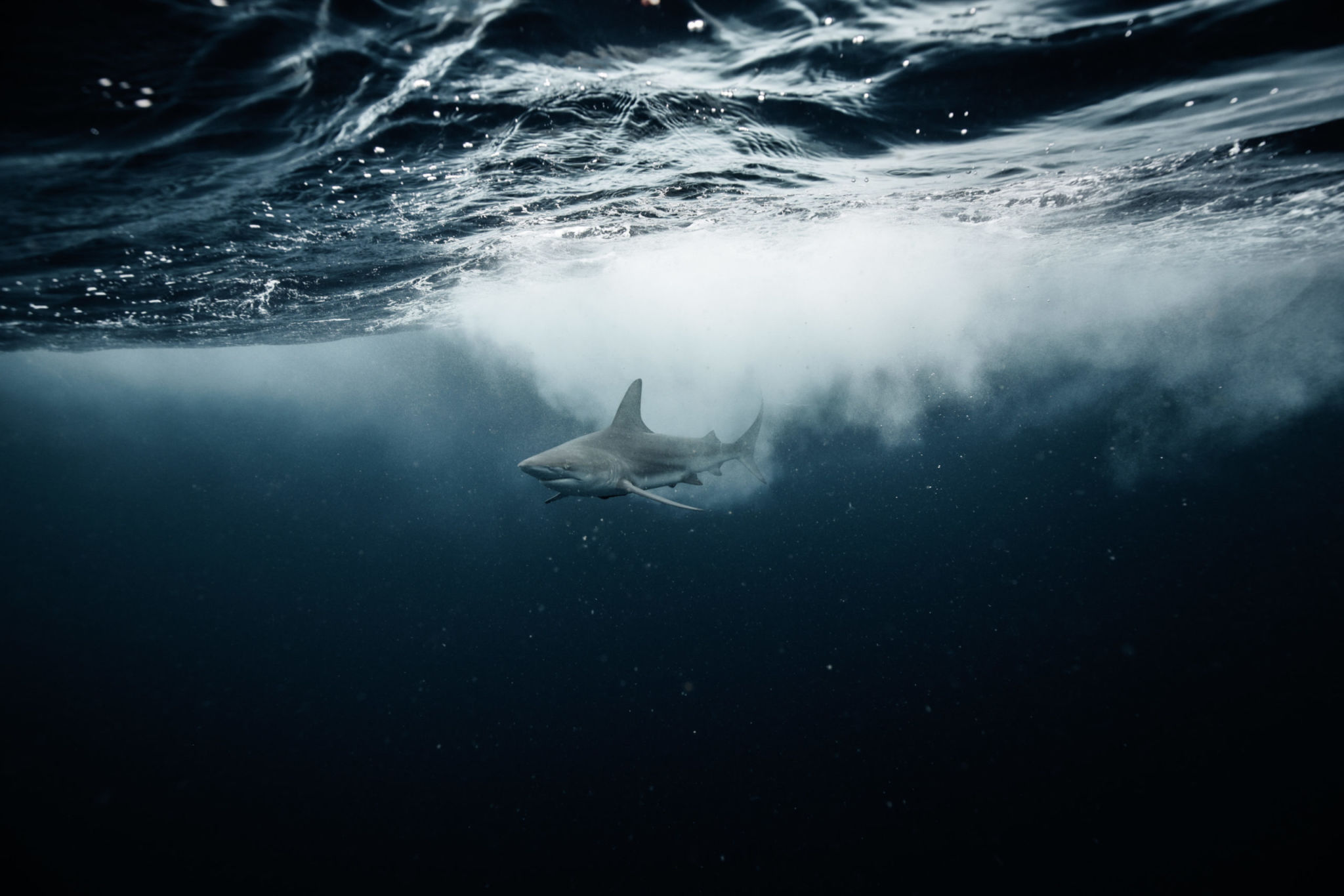
(Discovery Channel)
You mentioned the black tip sharks were definitely a big threat to you when you came out of the caves. Which shark made you the most uneasy on this trip?
There wasn’t one that was more terrifying than any of the others. Each shark presents its own set of challenges. If I see a black tip in the ocean, I don’t even look twice at it. But when there are 300 of them, and they are all competing for a food source, then it becomes a more dangers situation.
With tiger sharks, you can go to tiger beach in the Bahamas, and you can pet those tiger sharks like you can pet a puppy. The tiger sharks where we were diving have never seen a human being before. They are known as the dumpsters of the sea: they’ll eat anything they can fit in their mouth. So if you see a tiger shark on a dive like we did, you have to keep your eyes on it at all times because at any time [it] could come up behind you and take an investigative bite.
The bull shark has the highest testosterone of any shark in the world, and these are bull sharks that have never seen a person. So if they get an aggressive feeling, they are going to flip that switch in their brain and come right in.
What was it like working with Dr. David Ebert, who has discovered and named over 40 new shark species?
He is amazing. I aspire to be like him. He is an absolute legend, such an incredible scientist, such a world class academic. Dave’s specialty is with sharks and this show is about sharks, but my specialty is a bit broader. I like to say I’m the hide and seek king because my specialty is rare stuff. But to have someone like Dave in the field that can verify things and has all of the most intricate knowledge was amazing. Even though he has published tons of books, he is a walking encyclopedia of knowledge.
The reason we were so successful in this expedition, more so than any other expedition I’ve been on since we found three lost species, was because it was the perfect combination of Dave’s academia and scientific understanding, and my skillset with regards to hide and seek, finding things and flushing things out and trying all the different technology. When you combine those two elements, it seemed to be a perfect recipe for success.
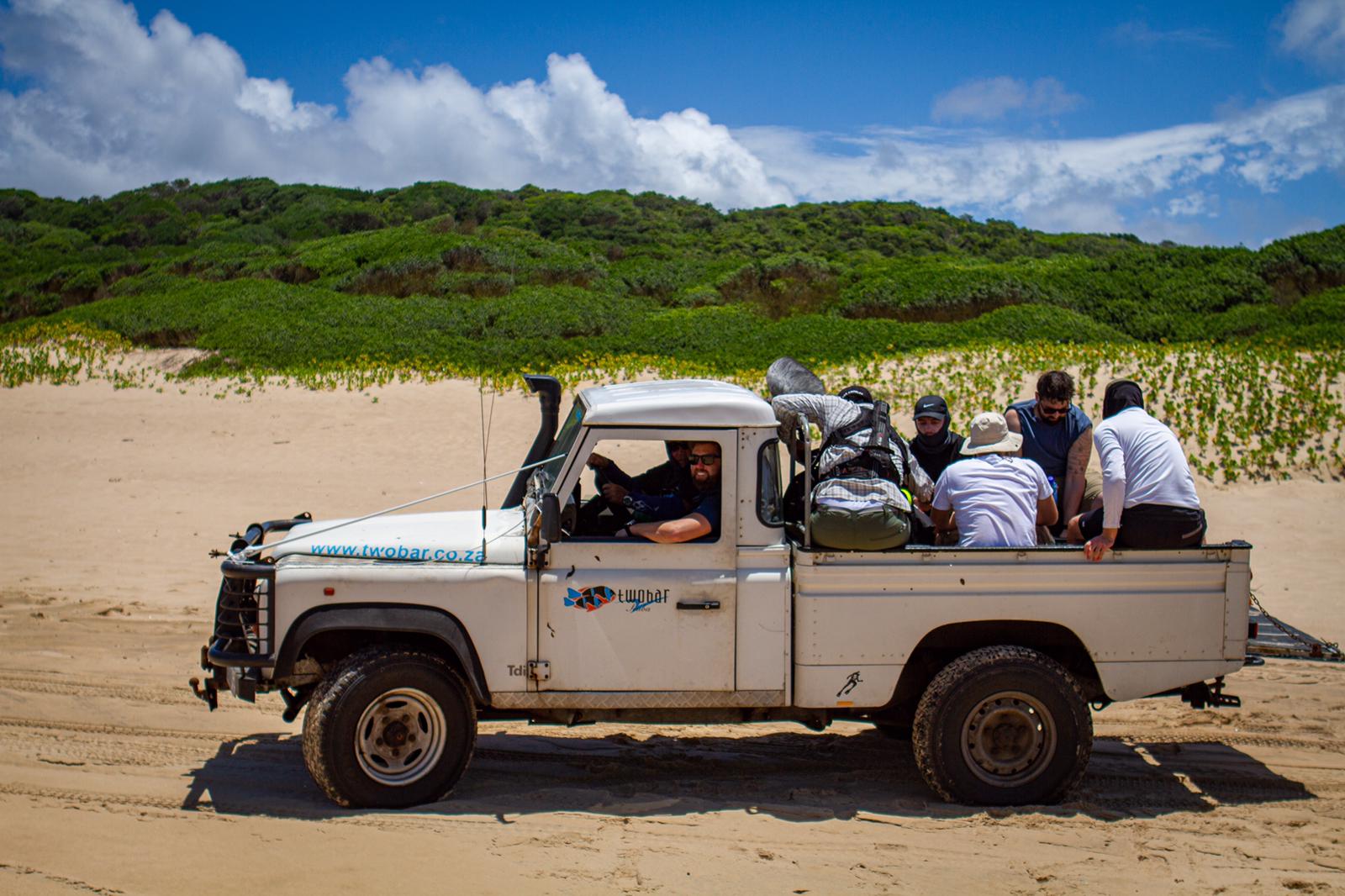
(Discovery Channel)
You guys visited a local diver who showed you footage of a shark he found. How did that discovery impact you?
Of the three discoveries, that might actually be my favorite, because I didn’t make it and that’s a wonderful thing. I don’t care about the fame or the glory, I care about the discovery on the scientific level. To show that what I’m doing, searching for these lost species, has become public knowledge enough that when I’m in a small town in South Africa and word gets out and that leads to such a significant find, that is what it’s all about, to inspire people to care enough about science and conservation.
Citizen science is so valuable. One set of eyeballs, me, looking for a lost species in the world is very ineffective. Millions of people looking, even if they don’t know what they are looking for, is incredibly effective and that is what happened in this situation. We had a citizen scientist come forward saying, “Hey I got this thing, don’t know what it is, what do you think?” It was like, “Oh my God, this is what we are here for! This is huge!” I was over the moon about that.
How often does it occur when someone from outside the scientific community contributes to an expedition?
Probably more than you expect. It’s not like I’ve made many random discoveries based on people showing pictures on their phone. Most of the time it’s like a house cat stuck in a tree with a bad image. But it happens to the point where, when you get into these remote locations, where people don’t understand that the thing we are looking for is valuable but understand that it is rare because they managed to get a picture or an image of it as something they have seen only a handful of times, it helps point me and my investigation into the right place. On my Animal Planet show Extinct or Alive, I always work with local communities. It helps target my search. It’s awesome to have that kind of thing happening.
For this special and anything else you are working on, have you had any constraints with COVID-19?
Certainly, hugely so. My life is dedicated to working with rare animals and unusual species and things on the edge of extinction. And I have more or less have been shut down since March, not because the animals don’t need my help, but with travel restrictions, government organizations being shut down, all of the people that would require the permitting. It’s frustrating, not because I care about being not at home, [but] because I know there are species out there that need and could use my help.
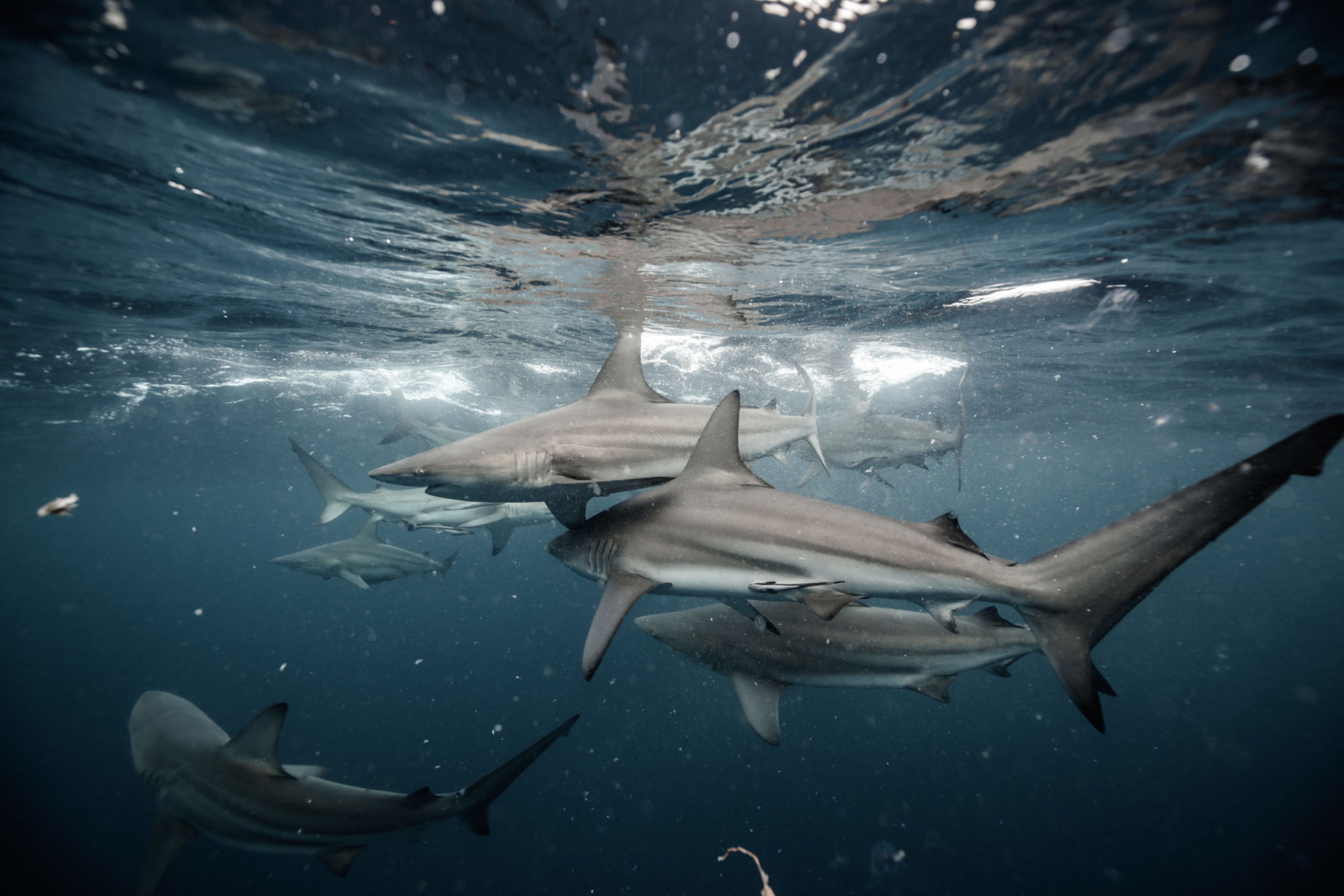
(Discovery Channel)
What are some of the common misconceptions about sharks in society as depicted in movies?
Everybody thinks they are so deadly and terrifying. Twenty years ago, the idea was if you got in the ocean near a shark, you were going to die. Our understanding has come so far in only 20 years; imagine where it will be 20 years from now. The most important thing to realize is these are not mindless killing machines. They are incredibly complex, amazing, in some cases intelligent, top of the food chain animals. They don’t deserve to be feared, but they do deserve to be respected. When we enter into the ocean, we are no longer the apex predator. That is the mental waiver you have to sign before you go swimming in the ocean. Villainizing sharks and thinking we should eradicate them from their homes so that we can swim safely is ridiculous.
That’s one of the reasons I love Shark Week. I love things like Shaq and Will Smith and Mike Tyson doing it. Those are not shark experts, but they are exposing this world of sharks to people. It is such a wonderful thing that Shark Week has been doing for 32 years to promote understanding of these incredible creatures.
Extinct or Alive: Land of the Lost Sharks, Tuesday, 8/7c, Discovery Channel

